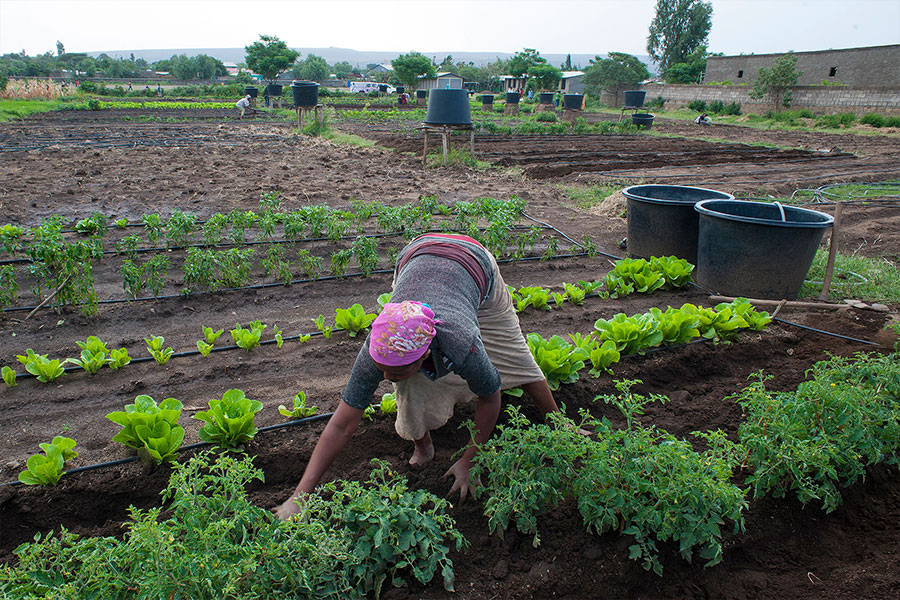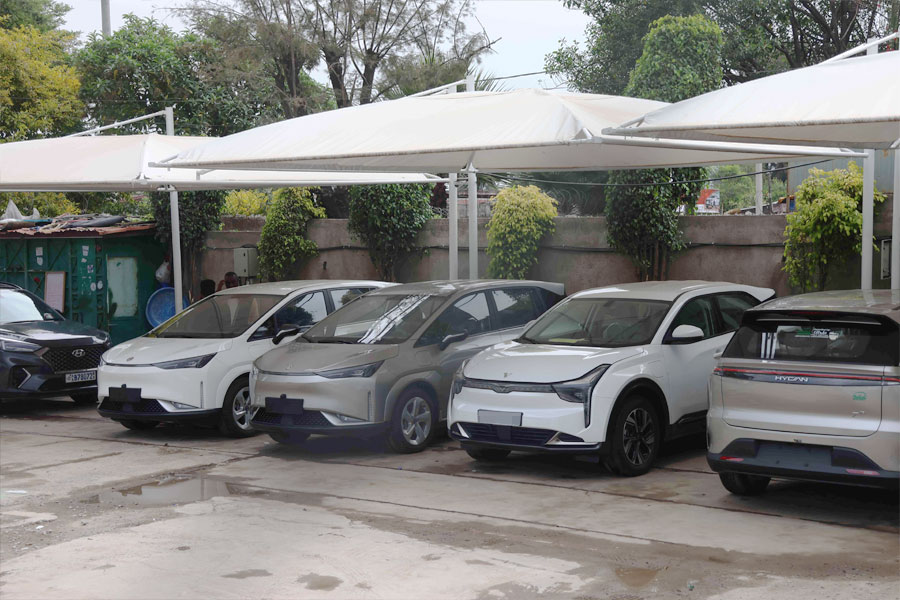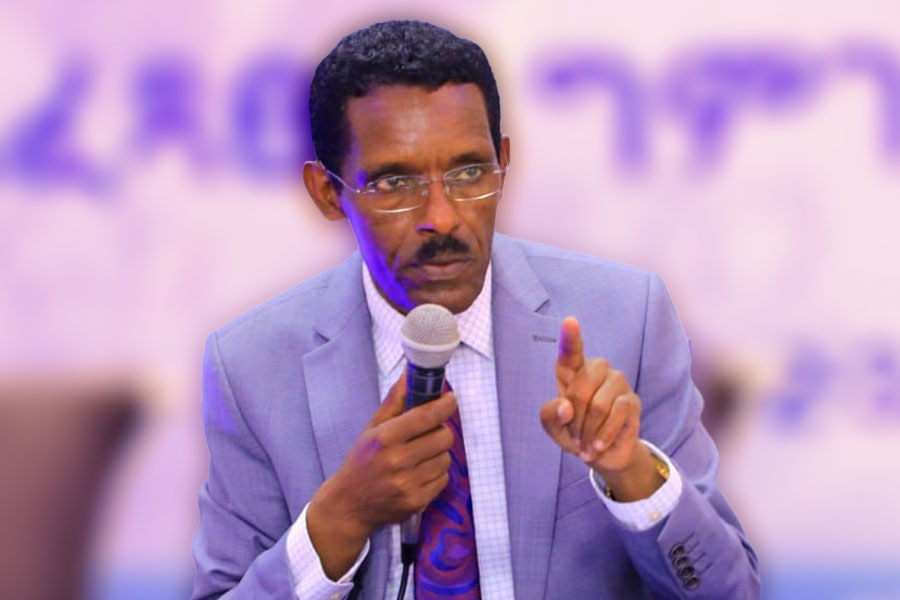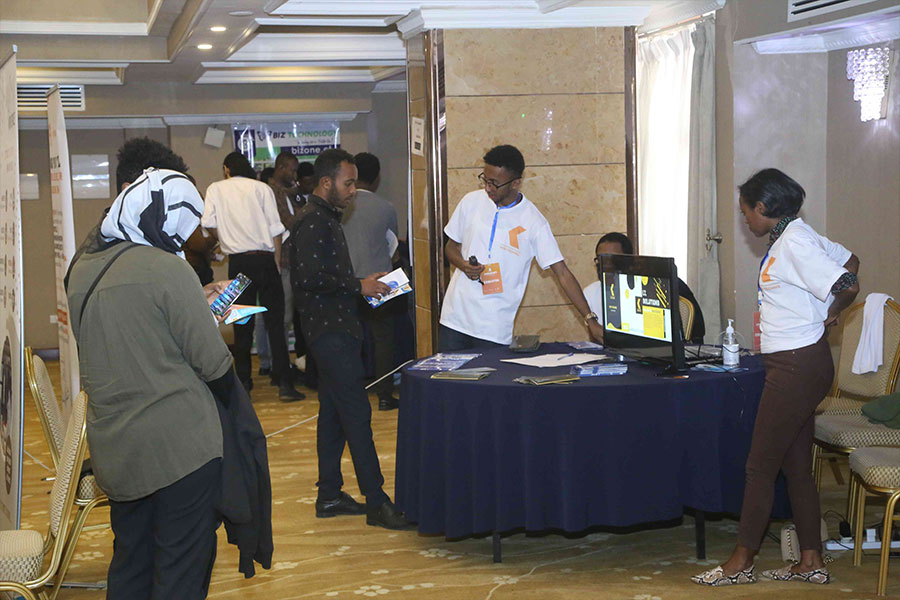
Fortune News | Jan 15,2022
Small-holder farmers residing in Amhara, Oromia, Sidama, and Southern regional states foresee solar power water pumps installation as Siram Trading Plc, moves inches closer to winning the contract.
According to procurement officials at the Ministry of Agriculture, the company is to be officially awarded as soon as requests for complaints from the evaluated bidders pass.
Financed by the World Bank, the sister company of 3M Engineering Plc was selected as the prospect winner among six bidders to install the solar irrigation pumps in three months for 26 million Br.
Ethio-Engineering Group, ACME Engineering Trading Plc, Agertu Engineering Plc, David Shirtliff Trading Ethiopia Plc and Darema Trading Plc were among the bidders that showed interest.
The project facilitators hope to replace diesel engine water pumps with solar energy-powered alternatives for irrigation projects reducing the farmers' expenses to buy fuel to operate the water pumps.
According to Elias Awol, head of irrigation development at the Ministry, more than 95pc of the energy aims to provide irrigation service, while the rest will be used to give energy access to households and streetlights. He said the project will mainly focus on fruits and vegetable production enabling large-scale cluster irrigation farms throughout the year.
"It would be reliable and affordable," he told Fortune.
The phase two project of the Agricultural Growth Program was ushered in 2018 with the aim of increasing smallholders’ agricultural productivity, promoting commercialization and contributing to national economic development after selecting 167 woredas in seven regional states.
The project has been hoped to benefit 1.6 million smallholder farmers who live in areas with the highest potential for agricultural growth.
Tewodros Zewdie, president of the Horticultural Producer Exporters Association, believes the new system could have a tremendous impact in reducing operational costs for small-holder farmers and increasing water-use efficiency.
"The farmers will be prone to less cost," said Tewodros.
Irrigation development has been embraced as a possible solution to maximize agricultural production to satisfy the food demand of the ever-increasing population and improve the income of smallholder farmers. Multiple projects have been developed throughout the country over the past years.
Lack of site-specific reliable hydrological data, poorly designed irrigation infrastructures, high construction costs and delayed project completion are the mentioned problems during the design and implementation phases of irrigation projects.
In 2014, USAID and the Ministry of Agriculture envisaged the first solar irrigation scheme for vegetables and fruits. A piloting program was implemented in Tigray, Amhara, Oromia and Southern regional states for five years where small-holder farmers jointly were farmlands in the different regions.
Avocados were prominently produced due to their demand on the international market, with over 300tns of production exported monthly.
“The piloting program had proved to be successful,” said Wale Getaneh, fruit and vegetable production manager at the association and the project facilitator.
He believes there is the possibility of achieving high yield through irrigation schemes by focusing on internationally demanded vegetables and fruits. Wale had observed the lack of proper investment and the lack of resilient focus on valued products through irrigation schemes.
According to a USAID report, close to 97pc of Ethiopian farms are reliant on rain, with intensifying droughts straining the country’s ability to provide for itself.
The report states the country’s economy depends on agriculture accounting for 80pc of the exports and 75pc of the country's workforce. However, only five percent of the land is irrigated and crop yields from small farms are below regional averages.
The Food and Agriculture Organization (FAO) predicts that global food demand is going to have to increase by 70pc by 2050 to keep up with expected global population growth.
Recurrent droughts in Ethiopia have resulted in the loss of life and the displacement of millions of people. Rapid population growth and traditional farming and management practices put intense pressure on the country’s soil, water and biodiversity resources. Variability in rainfall patterns marked by recurring droughts has caused extreme water scarcity, degraded water quality and chronic food insecurity.
A study published in 2022 shows that many of the developed irrigation projects are performing below their expected capacity, depleting before their lifetime due to technical issues.
Experts suggest that expanding irrigation farmland is critical for food production to keep pace with population growth and resist the effects of climate change.
Degnet Sultan, an irrigation engineering lecturer at Bahir Dar University, perceives that for irrigation to contribute to Ethiopia's food security, it needs to prioritise cereal production through large-scale irrigation schemes and small-holder farmers.
"Innovative, affordable, and easy technologies are needed," said Degnet.
PUBLISHED ON
Apr 03,2023 [ VOL
24 , NO
1196]

Fortune News | Jan 15,2022

Fortune News | Feb 10,2024

My Opinion | Dec 30,2023

Fortune News | Dec 25,2021

Featured | Sep 29,2024

Radar | Sep 14,2025

Radar | Feb 15,2020

Radar | Aug 20,2024

Radar | Jun 25,2022

View From Arada | Jun 21,2025

Dec 22 , 2024 . By TIZITA SHEWAFERAW
Charged with transforming colossal state-owned enterprises into modern and competitiv...

Aug 18 , 2024 . By AKSAH ITALO
Although predictable Yonas Zerihun's job in the ride-hailing service is not immune to...

Jul 28 , 2024 . By TIZITA SHEWAFERAW
Unhabitual, perhaps too many, Samuel Gebreyohannes, 38, used to occasionally enjoy a couple of beers at breakfast. However, he recently swit...

Jul 13 , 2024 . By AKSAH ITALO
Investors who rely on tractors, trucks, and field vehicles for commuting, transporting commodities, and f...

Oct 18 , 2025
The political establishment, notably the ruling party and its top brass, has become p...

Oct 11 , 2025
Ladislas Farago, a roving Associated Press (AP) correspondent, arrived in Ethiopia in...

Oct 4 , 2025
Eyob Tekalegn (PhD) had been in the Governor's chair for only weeks when, on Septembe...

Sep 27 , 2025
Four years into an experiment with “shock therapy” in education, the national moo...